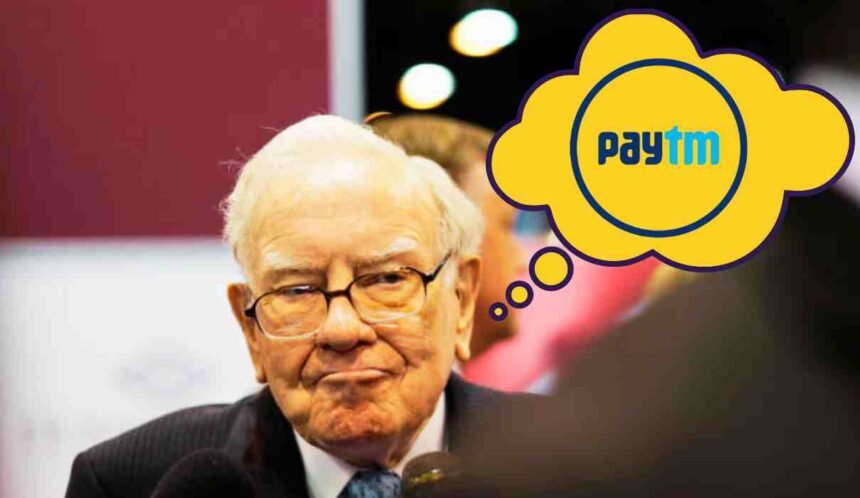Warren Buffett’s Berkshire Hathaway has exited its investment in top Indian fintech firm Paytm after booking a loss of around $140 million. The development marks a dramatic reversal for the startup once hailed as India’s next big tech success story.
Berkshire Had Bet Big On Paytm’s Growth Story
Berkshire Hathaway first invested $300 million into Paytm parent One97 Communications back in 2018, acquiring a 3% stake at a valuation of $10 billion. The move was hugely significant at the time, marking Buffett’s first direct investment into an Indian startup.
Paytm had emerged as India’s largest digital payments provider on the back of rapid growth in mobile payments and digital transactions. Its charismatic founder Vijay Shekhar Sharma had even found a place among Time Magazine’s 100 Most Influential People list in 2017.
With digital payments set for exponential growth in India, Buffett and Berkshire Hathaway decided to take a bite of the cherry. The investment was seen as a huge endorsement of Paytm’s potential and business model.
Trouble Started After Overambitious IPO
Paytm ran into trouble soon after its bumper $2.5 billion IPO in late 2021 amidst massive hype and expectations. Instead of the blockbuster listing predicted by many, shares sank 27% on their debut. And the downfall didn’t stop there.
Over the next 12 months, Paytm’s share price went into freefall – tanking over 75% to hit an all-time low of $5.5 in November 2022. While markets were also weak, concerns mounted over Paytm’s profitability and expensive IPO valuation.
The dramatic plunge in its share price forced the firm to announce share buybacks to shore up investor confidence. But the damage was already done.
Berkshire Starts Cutting Losses
With its investment sinking deeper into the red, Berkshire Hathaway decided to cut its losses. It first sold around $36 million worth of Paytm shares in August 2021.
The firm finally exited its position completely on 24th November 2022. SEC filings show it sold its remaining 2.85% stake in One97 Communications for around $121 million.
Overall Berkshire invested $300 million into Paytm and got back around $157 million. The massive $140 million loss amounts to nearly 50% of its original investment in India’s biggest payments provider.
What Went Wrong For Paytm?
Paytm’s fall from grace stands out given the immense potential India offers for digital payments and financial services. So where exactly did things go wrong?
Analysts argue that Paytm’s business model relies too heavily on cashbacks and incentives to grow. As a result it has struggled to achieve profitability – a huge concern for investors.
Its large size also makes it hard to sustain expensive incentives and cashbacks forever. Critics add that rival firms like Google Pay and PhonePe have quickly caught up, limiting its room for growth.
There are also worries over lofty valuations assigned to Paytm by recent investors like Berkshire. Its $20 billion IPO valuation now looks way over the top. No wonder the stock crashed after listing.
Is There Hope For A Paytm Comeback?
While the dramatic loss of an early backer like Berkshire Hathaway is a big blow, Paytm still retains support from other investors like Ant Group and Softbank.
And after the 75% price crash since its IPO, some analysts argue the startup looks fairly valued or even undervalued at current levels.
Paytm has also taken steps towards reducing cash burn and getting on a path to profitability with operating revenue growing rapidly quarter-after-quarter. It claims over 80 million monthly transacting users and 33 million merchants.
So while sceptics have written off Paytm as another case of irrational exuberance, there remains a possibility for the payments firm to script a comeback. India’s digital payments market is still growing at a breakneck pace.
And Paytm is still the leader in that race by some distance. Backed by heavyweights like Buffett in the past, few would bet against Vijay Shekhar Sharma producing another twist in the tale.





